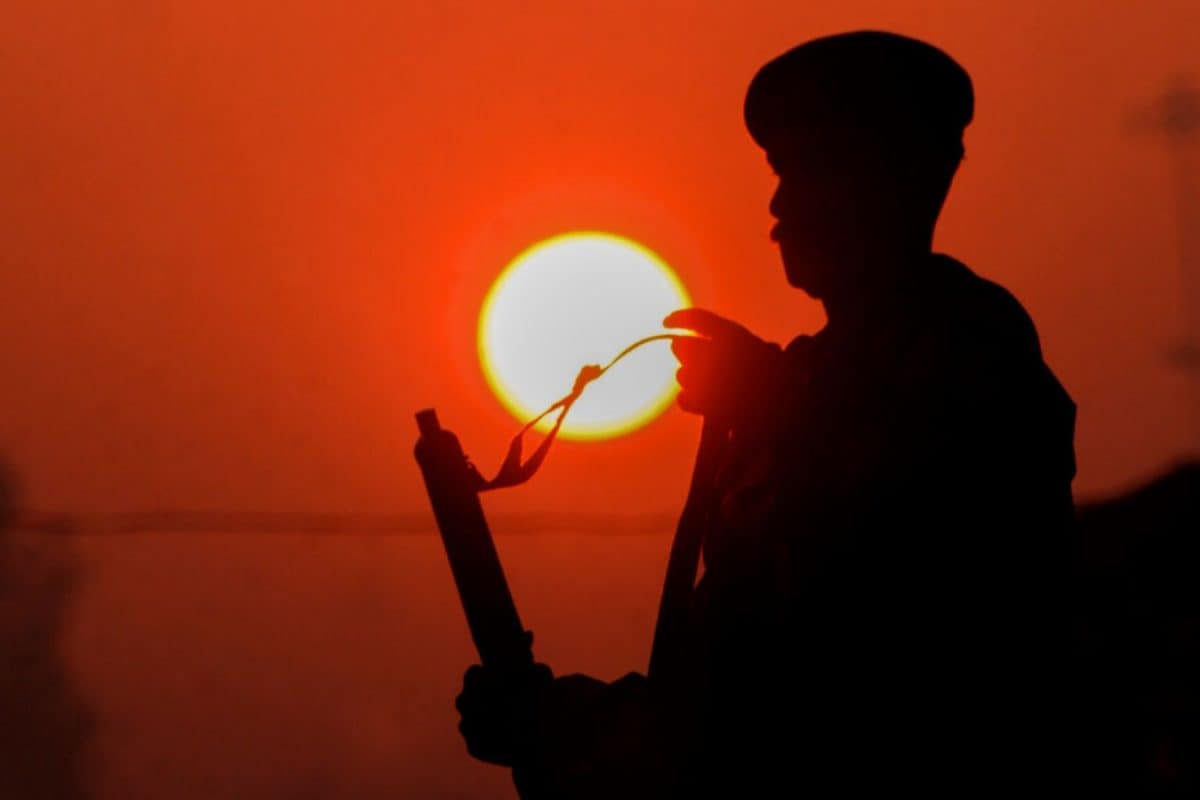

The deportation of a man from West Bengal to Bangladesh, despite possessing valid Indian documents, has ignited concerns about due process and the targeting of marginalized communities. This incident is not isolated, as recent reports indicate an intensified campaign to deport alleged illegal immigrants, raising alarms among human rights activists, legal experts, and even prompting formal protests from Bangladesh.
The case involves Mehbub Sheikh, a Bengal man working in Thane, Maharashtra. Despite his family submitting documents proving his Indian citizenship to the Maharashtra Police, including voter ID and Aadhaar card, he was allegedly deported to Bangladesh. Samirul Islam, chairman of West Bengal Migrant Welfare Board, stated that the Maharashtra Police did not even inform the West Bengal government before the Border Security Force (BSF) pushed Sheikh across the border. The West Bengal government has expressed strong disapproval of the BSF's actions, labeling the deportation as completely illegal, as the BSF did not verify his nationality.
This incident is part of a larger trend. Since early May 2025, Indian authorities have reportedly deported over 2,500 individuals labeled as alleged Bangladeshi nationals in a nationwide campaign. This operation involves detaining suspected illegal immigrants across various states, transferring them to border states, and then "pushing them back" into Bangladesh.
These actions have drawn sharp criticism from human rights groups, academics, and lawyers, who argue that such deportations violate the Indian constitution and the right to due process. Concerns are mounting that many of those deported are, in fact, Indian nationals wrongfully identified as Bangladeshis. Some deportees have shared harrowing accounts of being beaten and forcibly removed, despite presenting proof of their Indian citizenship.
Khairul Islam, a 51-year-old former schoolteacher from Assam, recounts being picked up by police, blindfolded, and then pushed into Bangladesh. He had been declared a foreigner by a tribunal in 2016, a decision he was still fighting in court. Similarly, Mr. Islam stated that he was beaten at the Matia Detention Centre when he resisted deportation. His family had submitted documents proving his Indian citizenship to local authorities but to no avail.
The situation has become a point of contention between India and Bangladesh. Bangladesh has formally protested the deportations, lodging a diplomatic complaint and expressing concerns about individuals being pushed into the country. While India asserts that migration from Bangladesh is on the rise, Bangladesh insists that such flows have declined due to its economic progress.
These deportations also raise questions about the functioning of Foreigners Tribunals (FTs) in India. These tribunals are responsible for determining whether a person is an Indian citizen or not. However, the efficacy of these tribunals has been criticized. There have been cases where individuals have been declared foreigners without proper hearings or despite presenting evidence of their Indian citizenship.
In light of these developments, concerns are growing about the rights and treatment of Bengali-speaking Muslims in India. Allegations of arbitrary detention, lack of due process, and forced deportation are creating an atmosphere of fear and uncertainty among these communities. Some accuse the authorities of operating with a bias, assuming individuals are non-Indian simply because they are Muslim.
The incident involving the Bengal man deported to Bangladesh, despite holding valid documents, underscores the urgent need for a fair, transparent, and rights-based approach to immigration and citizenship determination in India.